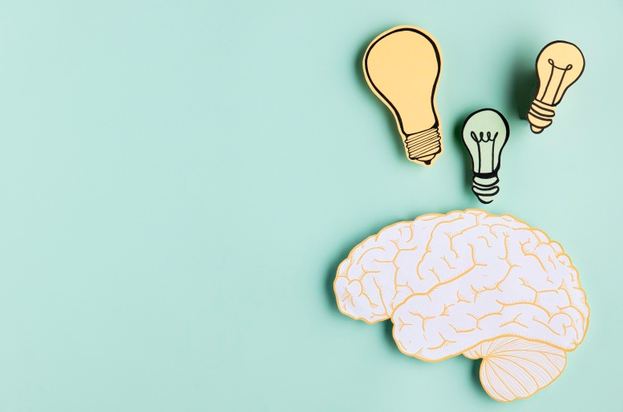From major life-altering decisions to small choices, we have all had to make decisions throughout our lives. However, when perplexing situations arrive, many of us get indecisive. Sometimes, conditions like limited time, fewer resources, concerns about the consequences, and pressure appear.
Knowing what effective decision-making is with strategies to get around these circumstances with precision is the key to tackle these kinds of situations. NDM or natural decision making studies specialize in the observation of how people make decisions about real-life dilemmas. Learning about naturalistic decision making and how we make decisions can help us trick our minds to create ease while making a decision. Given the importance, let’s unravel how we make decisions with strategies that will lead to the satisfaction we crave!
How Do We Make Decisions?
The core of decision making is uncertainty. Uncertainty makes us feel pressured to make the right decision that we can live by in the long run. When faced with a decision to make, our brain immediately starts to prepare the resources or information. This information is the relevant one that will help us make one effective verdict. Even the knowledge or the resources our mind accumulates naturally can cause difficulties. The more resources available, the more pool of options we have to opt from. It provokes confusion as to what one should choose. Although the ambivalence of the confidence to decide by having a generous amount of information, extensive information confusing us is known as the TMI (too much information) paradox.
Scientist Sheena Iyengar sufficiently explains the TMI paradox. She says that it is just like our experience at the supermarket. When at a supermarket, we have a few items of our desire to buy from, we assert the wish of having more variety. But if there are too many commodities before us, we get bewildered.
Availability of time also impacts the way we make decisions. Insufficient availability of it causes distress and sometimes wrong choices. But now, we can’t spend our whole lives to reckon upon what is the best decision to be concluded. Therefore, even with flexible deadlines, no one has an unlimited amount of time. We need to make our verdict within a time frame or occasionally: sometimes right then and there. Many people get nervous if they decide in a very brief fraction of time. They might and sometimes fear facing the unfavorable aftermath of their judgment. Age plays a factor too in our head unconsciously. The earlier the decision we make at a young age, the longer we have to live with it. Older people can also accumulate enough knowledge and experiences of the critical ordeals that may come in handy in life. But unfortunately, we need to have a perfect long shot of the arrow on the goal that we want to achieve through such perfection. Therefore, it is essential to know the thought processes to handle the distress.
After striving for that perfection through your decision, you now need to learn how to deal with the outcome. We get agitated about deciding because of permanent stress about seeking perfection. We wear ourselves out while being stressed for favorable results. The more we expect out of the decision, the more we are delighted when the conclusion comes out in our favor. But if vice versa, we tend to get more upset as well: even more than we would have if our expectations weren’t so elevated.
Unfortunately, we have to live with uncertainty. We have to live with regrets if our choice is wrong. But we should know how to construct our life around the results of the decision we make. Unwanted aftermath is not always the end of the world. We can always bring forth beneficial aspects out of a pessimistic situation: never stop making decisions even after an unfavorable result. Learn what was wrong with your judgment and make the next crucial decision to get back on track. Check out our tips on how to learn from failures.
How to be Good at Naturalistic Decision Making?
With the uncertainty of perfection being the core danger in the decision-making realm, how can you know that you made the right choices or how even to get started in the first place?
Know Your Needs
The key to making the best decision is to know what you need. Hence, make sure that your decision caters to the need in the best way possible.
Know Your Capabilities: Set Realistic Milestones
We should know what we need to outperform in life and whether we have enough self-determination to achieve it. Per your self-determination and capabilities, set realistic milestones towards your goals. Always keep an open eye on the possibility that can improve your decisions or lives as well.
Time Management
The second predicament for decision making is the time crunch. We can’t possibly buy or increase the fixed time. But we can utilize that time effectively. Analyze all sides of the situation before you conclude.
We should be able to identify the power each decision holds. Ask yourselves the right questions that may help you alleviate any complications you may have. You can also write things down with pros and cons: choose a logical over emotional benefit for primary life decisions.
Practice Brain Workouts
To think out of the box, try some brain workouts. Not only do they sharpen your brainpower, but they elevate your decision-making abilities. They help you learn to generate new ideas that will help to ease the complication of decision making.
To bring natural decision-making aspects to us, we should train our brains to adapt to different situations. We should leave our comfort zone and put our brains to new challenges. Complex problems don’t need complex solutions.
Know that Perfection is a Myth
The third dilemma of decision making revolves around our dreading of the unwanted outcome when we strive for perfection. To get over that, we should get along with the fact that perfection doesn’t exist. If we focus too much on it, we may never be able to make a decision.
Be Confident and Take the Onus
If you have enough knowledge, all you need is the confidence to make the required decision. Tell yourself that it’s okay to be unaware of what option will be the best.
A person shouldn’t ask someone else when they need to make a decision. Because they might sway you from your goal, and you will waste time while convincing them that your plans and prediction about the future is promising.
We make about 20,000 decisions daily, subconsciously. We don’t reckon upon the fact that are the decisions we are making beneficial or destructive? The reason for making so many decisions every day is because of the confidence we possess. We should carry this kind of assurance through every decision making so we don’t exhaust ourselves. However, you may ask for the opinions of others.
Follow your Intuition
Intuition or gut feeling can lend a helpful hand while making decisions. It’s when we know that a specific step is the right step, but we don’t know why.
According to scientists, Intuition happens because we have more knowledge than we think we have. Our brain knowing the aspects of a situation signals us to make a specific decision. Serious calculations are not always needed while making a choice. A person should be resilient to whatever life throws at them. However, make sure you use common sense as well. We should always go ahead in life with making decisions every step of the way. But these two are not enough when these decisions put life or future at stake. Robust thinking is the key to promising results then.
The Bottomline
Actively keep what you have learned in your mind and make the experience easier for yourself. Try different ways to improve your decision-making skills. If you’re unsure of what career you are willing to take, these resources on finding your career path will surely help you.



